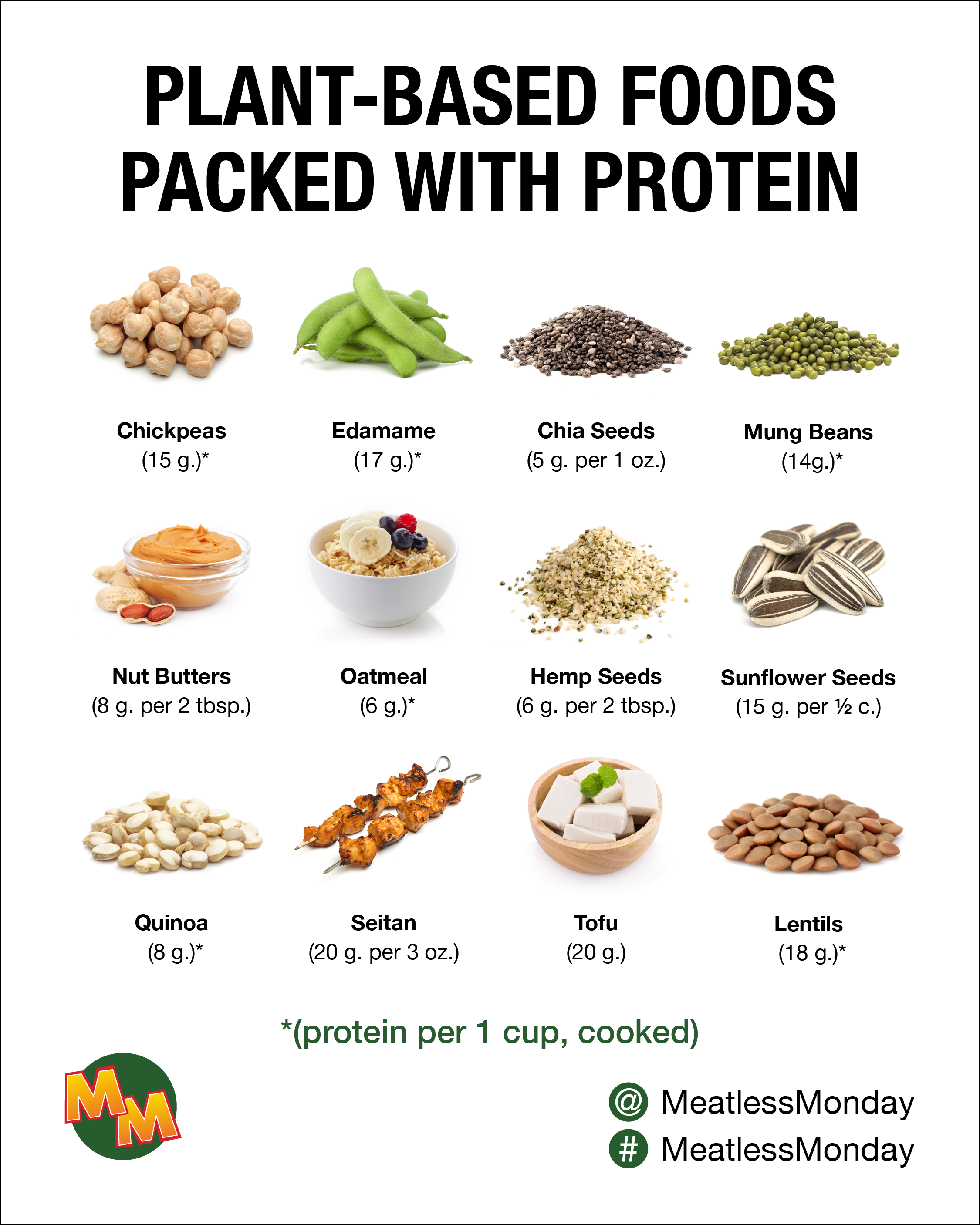Dietitian-Approved Sugar Free Sauces for Clean Eating Success
Dietitian-Approved Sugar Free Sauces for Clean Eating Success
Blog Article
All Concerning Healthy Food: Advantages of Taking On Plant Based Options
The conversation surrounding plant-based diet plans has gotten significant attention in current years. Several people are discovering the prospective health benefits, nutritional benefits, and environmental impacts connected with these dietary options. As individuals become extra familiar with their food's impact on wellness and sustainability, questions develop concerning the practicalities of adopting such a lifestyle. What details changes can one expect, and exactly how might these selections reshape not just personal health and wellness yet additionally the planet's future?
Comprehending Plant-Based Diet Regimens
Although many individuals link plant-based diet regimens mostly with vegetarianism or veganism, these diets can encompass a vast array of consuming patterns that prioritize whole, minimally processed plant foods. Such diet plans often consist of fruits, vegetables, entire grains, vegetables, seeds, and nuts, while limiting or removing pet products. This adaptability enables people to customize their nutritional options according to personal choices and dietary demands. Some may embrace a mostly plant-based diet regimen while still occasionally consuming meat or dairy, frequently referred to as a flexitarian method. The emphasis continues to be on integrating more plant foods, which can cause a varied variety of meals and flavors. Understanding these various analyses of plant-based consuming is vital for appreciating its ease of access and appeal in modern food culture.
Health Perks of Plant-Based Foods
The wellness benefits of plant-based foods are substantial, offering a nutrient thickness benefit that supports general well-being. Research suggests that these foods can boost heart wellness and play an important duty in effective weight management. By including a lot more plant-based choices, individuals may boost their dietary options and advertise long-lasting health.
Nutrient Thickness Benefit
Nutrient density plays an important role in the wellness advantages of plant-based foods, making them a compelling selection for those looking for a well balanced diet plan. Plant-based foods, such as fruits, veggies, vegetables, nuts, and entire grains, are commonly abundant in important vitamins, minerals, and antioxidants while being reduced in calories. This high nutrient thickness allows individuals to consume fewer calories while still meeting their nutritional requirements. Furthermore, these foods are packed with dietary fiber, advertising digestive system health and aiding in weight management. By integrating nutrient-dense plant-based choices, customers can boost their overall wellness, sustain their body immune systems, and reduce the risk of persistent diseases. Ultimately, the nutrient thickness of plant-based foods highlights their importance in a health-conscious way of life.
Heart Wellness Improvement

Weight Monitoring Assistance
Along with promoting heart health and wellness, a plant-based diet can significantly assist in weight administration. This nutritional approach stresses entire foods such as fruits, veggies, beans, nuts, and entire grains, which are usually reduced in calories and greater in fiber contrasted to animal-based products. The high fiber content aids boost satiety, reducing general calorie intake. Plant-based diet plans are frequently rich in crucial nutrients while reduced in harmful fats, making it simpler to preserve a healthy weight. Research indicates that individuals that adopt a plant-based way of life tend to have reduced body mass indexes (BMIs) and experience even more effective weight-loss contrasted to those who eat meat-heavy diet regimens. Subsequently, welcoming plant-based alternatives is a critical selection for reliable weight monitoring
Nutritional Worth of Plant-Based Ingredients
Plant-based components are rich in essential nutrients, using a diverse variety of vitamins, minerals, and antioxidants that contribute to overall health and wellness. A comparison of healthy protein resources reveals that while pet products are usually checked out as exceptional, numerous plant-based alternatives give appropriate protein and various other beneficial compounds. Comprehending the dietary value of these ingredients can assist individuals make informed nutritional selections.
Essential Nutrients in Plants
Nutrient-rich ingredients located in plants provide a varied array of important minerals and vitamins that add substantially to overall health and wellness. These ingredients are rich in vitamins A, C, and K, which sustain immune feature, vision, and blood clotting, specifically. Additionally, plants supply important minerals such as potassium, magnesium, and calcium, crucial for heart health and wellness, muscle mass feature, and bone toughness. The visibility of fiber in plant-based foods help food digestion and promotes a healthy intestine microbiome. Anti-oxidants, found abundantly in vegetables and fruits, assistance fight oxidative tension and minimize inflammation. Numerous plant foods are low in calories yet high in nutrients, making them an exceptional option for those looking for to preserve a healthy weight while making sure suitable nutrient intake.

Contrasting Healthy Protein Resources
Healthy protein resources vary considerably in their dietary accounts, with plant-based ingredients providing one-of-a-kind advantages. Unlike animal healthy proteins, which commonly contain saturated fats and cholesterol, plant healthy proteins have a tendency to be reduced in these undesirable parts. Legumes, nuts, seeds, and whole grains are abundant in crucial amino acids, fiber, vitamins, and minerals. For example, lentils provide high healthy protein web content along with significant iron and folate, while quinoa is a total healthy protein, offering all 9 important amino acids. Additionally, plant-based proteins are commonly gone along with by anti-oxidants and phytochemicals that support total health and wellness. The shift to plant-based healthy protein resources not only improves nutritional consumption however likewise lines up with lasting nutritional methods, lowering ecological effect and promoting long-lasting health advantages.
Environmental Impact of Plant-Based Consuming
As understanding of climate adjustment grows, lots of people are checking out sustainable nutritional choices that can significantly lessen their environmental impact. Plant-based consuming has arised as a substantial contributor to lowering greenhouse gas emissions, which are primarily connected with livestock production. The growing of fruits, veggies, beans, and grains usually requires less resources, such as water and land, compared to pet farming. Furthermore, plant-based diets can lead to reduced deforestation, as much less land is needed for grazing livestock or expanding animal feed. By changing in the direction of plant-based choices, consumers can click for more info sustain biodiversity and promote much healthier ecosystems. Overall, embracing plant-based eating not just benefits personal health however additionally stands for a crucial action toward environmental sustainability and conservation efforts.
Overcoming Common Misconceptions
While several people recognize the benefits of a plant-based diet plan, numerous misconceptions commonly discourage them from totally embracing this way of life. A common belief is that plant-based diets do not have sufficient healthy protein; nevertheless, various plant resources, such as legumes, nuts, and tofu, offer sufficient protein. Furthermore, some assume that this diet plan is costly, when as a matter of fact, staples like beans, rice, and seasonal vegetables can be quite budget-friendly. Another misunderstanding is that plant-based consuming is extremely limiting, whereas it actually uses a varied selection of foods and tastes. Many fret that a plant-based diet plan might lead to deficiencies, yet with appropriate preparation, people can get all essential nutrients, including vitamins and minerals, while taking pleasure in a wide variety of delicious dishes. Broad Tips for Transitioning to a Plant-Based Lifestyle
Making the shift to a plant-based way of living can be an enhancing experience, though it usually requires some guidance to browse the initial redirected here adjustments. First, individuals are urged to begin slowly, incorporating even more fruits, vegetables, beans, and whole grains right into their dishes while minimizing meat and milk intake. Dish planning is crucial; preparing a regular menu can assist relieve the change and protect against final harmful choices. Discovering new recipes and cooking methods can also enhance the experience and keep enjoyment about plant-based eating. Furthermore, joining support system or areas can give inspiration and share beneficial tips. Ultimately, staying educated regarding nourishment guarantees balanced dishes, protecting against shortages while fostering a healthy and balanced, enjoyable plant-based way of life.
Delicious Plant-Based Meal Ideas
Checking out tasty plant-based meal concepts can influence people to embrace a more healthy diet regimen. One prominent option is a hearty quinoa salad, including cherry tomatoes, cucumber, and a tangy lemon-tahini clothing. Another favorite is a mouthwatering lentil stew, loaded with carrots, celery, and great smelling natural herbs, excellent for a soothing supper. For breakfast, overnight oats made with almond milk, chia seeds, and topped with fresh berries supply a nutritious beginning to the day. Additionally, a vivid vegetable stir-fry with tofu and a range of vivid veggies can be a quick yet pleasing dish. Lastly, luscious avocado salute on whole-grain bread, sprayed with seeds and spices, uses a straightforward yet tasty treat. These meals showcase the range and richness of plant-based eating.

Often Asked Concerns
Can a Plant-Based Diet Plan Provide Enough Healthy Protein?
The inquiry of whether a plant-based diet click reference can give sufficient healthy protein is usual. Various resources, consisting of legumes, nuts, seeds, and entire grains, can meet protein needs efficiently, supporting a nourishing and balanced diet for people.
Are Plant-Based Diets Ideal for Children?
The viability of plant-based diet regimens for children depends upon cautious preparation. Adequate nutrients need to be assured, including minerals, vitamins, and proteins. With proper guidance, such diets can sustain healthy and balanced growth and development in children.
Just how Do I Eat in restaurants on a Plant-Based Diet plan?
Eating in restaurants on a plant-based diet includes looking for restaurants with diverse food selections, requesting modifications, and checking out vegan-friendly choices. Preparation in advance and communicating nutritional preferences can enhance the eating experience while keeping dietary selections.
What Are Typical Irritants in Plant-Based Foods?
Typical allergens in plant-based foods include soy, gluten, nuts, and seeds - Plant Based Chicken. Individuals following a plant-based diet plan must understand these irritants and review labels carefully to avoid damaging responses and guarantee risk-free consumption
Can Plant-Based Diets Help With Weight Loss?
Study suggests that embracing a plant-based diet regimen might facilitate fat burning due to its normally lower calorie density and higher fiber content. This combination can boost satiety, aiding individuals manage their calorie intake efficiently. Several individuals link plant-based diets mostly with vegetarianism or veganism, these diet plans can incorporate a broad variety of consuming patterns that focus on whole, minimally processed plant foods. Nutrient thickness plays a vital function in the health and wellness advantages of plant-based foods, making them an engaging selection for those seeking a balanced diet plan. Plant-based diet plans have actually been revealed to markedly enhance heart health and wellness, as they commonly have components that sustain cardio function. In addition to promoting heart health and wellness, a plant-based diet plan can substantially help in weight monitoring. A common idea is that plant-based diet plans do not have sufficient protein; however, various plant sources, such as beans, nuts, and tofu, offer sufficient protein.
Report this page